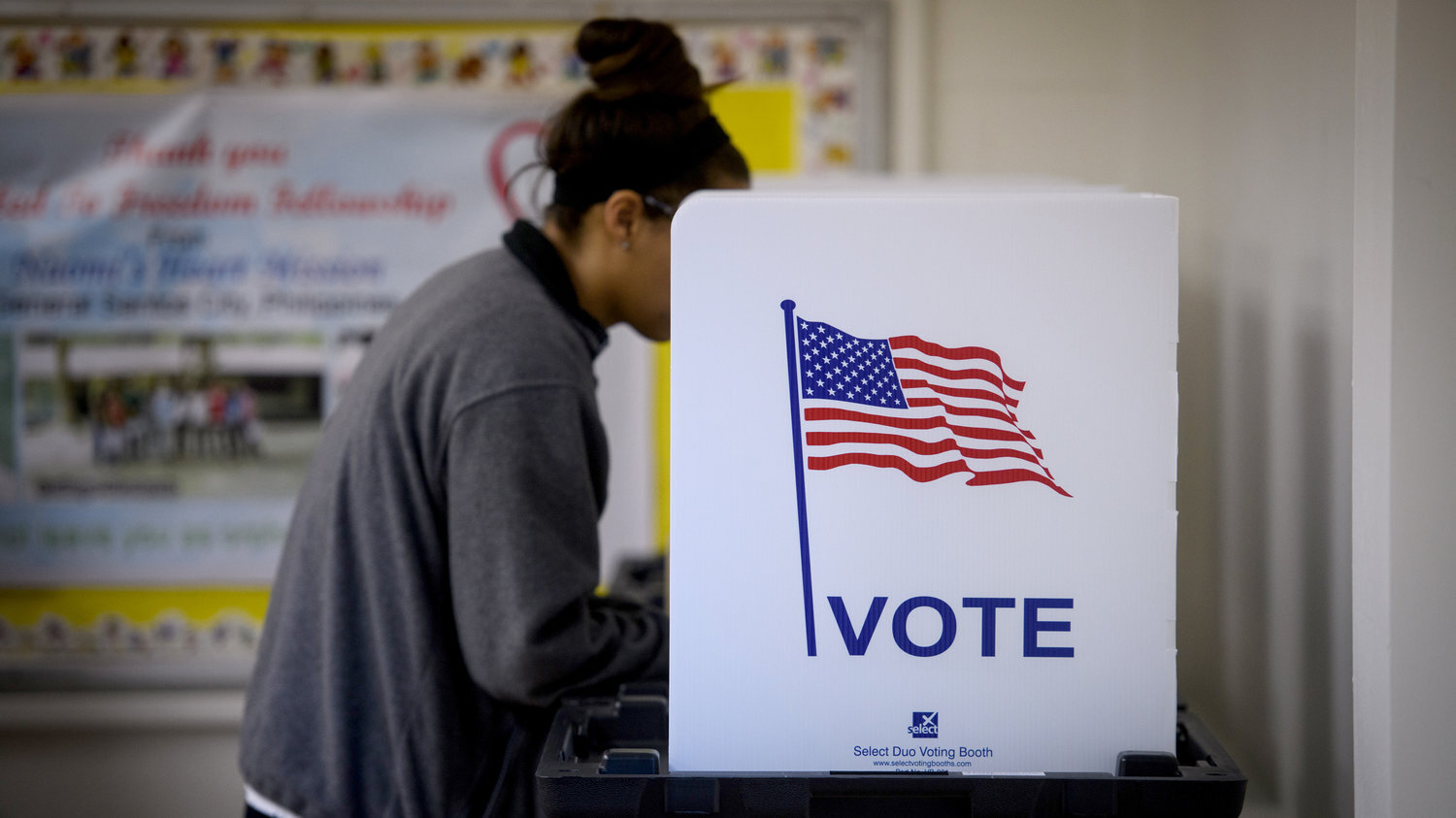Sustainability on the Ballot 2020
Image from NPR
It's no secret that large-scale governmental change is the most efficient path to sustainability. With the 2020 election coming up fast in the United States, we have the chance to make serious changes. In this post, I outline how sustainability pops up in every part of your 2020 ballot.
State Ballots
Colorado Proposition 114
In Colorado, Proposition 114 asks whether or not gray wolves should be reintroduced to designated areas west of the continental divide. Gray wolves lived in this area (and all across the northwestern U.S.) before the arrival of European settlers, who intentionally killed the wolves to protect their livestock. Since that time, gray wolves have been successfully reintroduced in Idaho, Montana and Yellowstone National Park.
Those who support the proposition argue that reintroducing wolves will benefit the ecosystem by balancing other big game populations. Those who oppose the proposition argue that the wolves will harm the livestock and hunting industries, just as they did in the 1800s. If the proposition passes, the Colorado Parks and Wildlife Commission will create a plan to complete the reintroduction of gray wolves by the end of 2023.
Nevada Question 6
In Nevada, Question 6 asks voters if they think electricity providers should be required to source at least 50% of energy from renewable sources by 2030. If passed, the state would create a plan to gradually increase the required percentage of renewable energy from 2022 to 2030.
If this question sounds familiar to Nevadans, that's because you've seen it before! In Nevada, voters need to approve proposed amendments in two even-numbered years to amend the Nevada Constitution. In 2018, nearly 60% of voters supported Question 6.
Those who support the question argue that it will create clean energy jobs and decrease fossil fuel pollution. Many also note that Nevada's sun exposure is ideal for solar energy. Those who oppose the question argue that the plan will be too costly and that this type of regulation does not belong in the Nevada Constitution.
Senators, House of Representatives and State Governments
Electing state and local representatives who are passionate about sustainability is a super effective way to make our country more sustainable. When it comes to Senators, U.S. Representatives and state governments, most candidates align their attitudes toward sustainability with their parties' values.
Democrat and Green Party candidates tend to favor increased environmental regulation, while Republican and Libertarian candidates tend to favor more hands-off approaches to environmental issues. However, this is not always the case so you should thoroughly research your state's candidates before voting. You can find out more information about the candidates on your ballot on sites like Ballotpedia or Vote411, and you can view a sample ballot on your state's election website.
Presidential Candidates
Joe Biden
In general, Joe Biden favors stricter environmental regulations than Donald Trump and Jo Jorgensen, but less strict regulations than Howie Hawkins. In particular, Biden wants to achieve carbon pollution-free electricity across the U.S. by 2050, invest in communities impacted by reduced coal consumption and create more sustainable infrastructure.
Biden emphasizes environmental justice and the need to prevent fossil fuel companies from exploiting communities of color. He also plans to sign back onto the Paris Climate Agreement and become a global sustainability leader.
Donald Trump
Donald Trump tends to minimize environmental and social sustainability issues and has rolled back many previous environmental regulations. Throughout his first term as president, he cast doubt on climate change and humans' role in it, despite the plethora of scientific evidence demonstrating these phenomena.
His administration also withdrew the U.S. from the Paris Climate Agreement, approved the Keystone XL pipeline construction, and rescinded the Clean Power Plan and many other environmental regulations, all while subsidizing the fossil fuel industry. To put it lightly, Trump is not known as a pioneer of sustainability. If he gets reelected, our country will likely continue and perhaps increase our reliance on heavily polluting fossil fuels.
Howie Hawkins
As a member of the Green Party, Howie Hawkins has centered his campaign around sustainability initiatives. Hawkins is an ecosocialist, meaning he wants to create a more socialist economy while introducing significant sustainability regulations.
Specifically, Hawkins argues that we must change our economic system to secure fundamental human economic rights and reverse climate change and environmental degradation. He plans to accomplish this through the Green Economy Reconstruction Program, which will create a 100% clean energy system by 2030 and reconstruct all economic sectors to prioritize sustainability.
Jo Jorgensen
The Libertarians' Jo Jorgensen argues that the government should take its paws out of sustainability to increase innovation and phase out fossil fuel companies. She argues that reducing regulations will allow for an easier transition from fossil fuel energy to renewable energy. She is particularly enthusiastic about nuclear energy, which she views as the most cost-efficient low-emission energy source.
Jorgensen opposes the Green New Deal, arguing that it will hinder scientists' and environmental professionals' ability to freely find environmental solutions. She also plans to stop giving disproportionate subsidies to the fossil fuel industry to level the playing field between fossil fuel and renewable energy companies.

